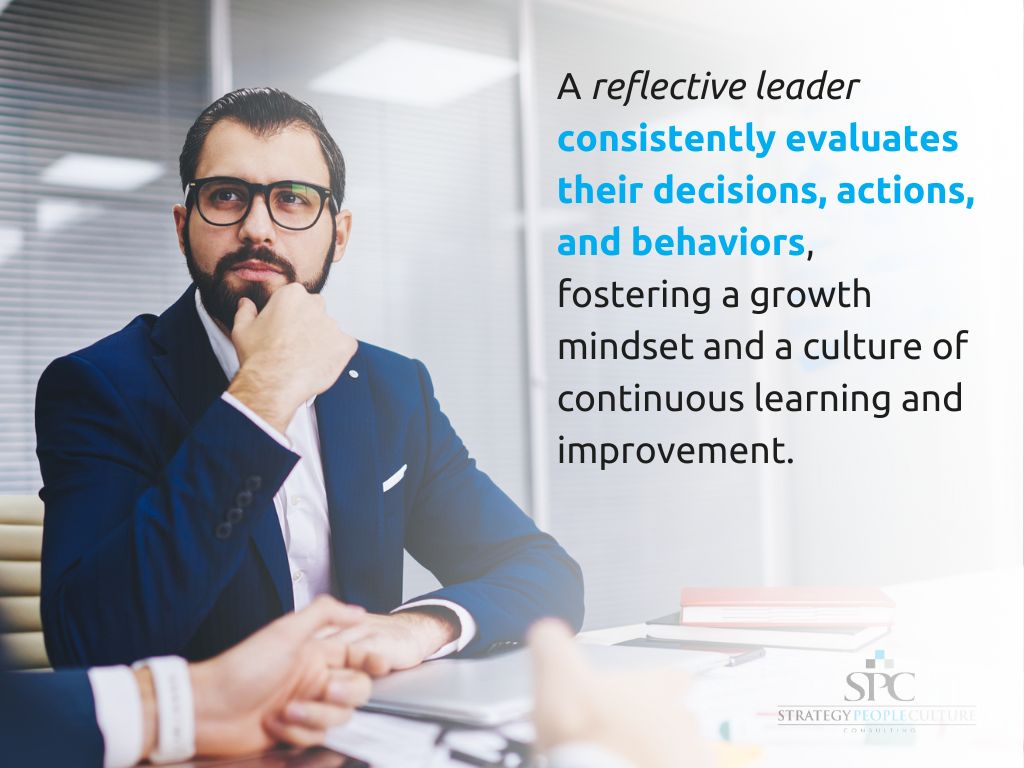The Power of Conviction and Reflection in Leadership

As leaders, exploring and understanding the various styles of leadership is integral to the development of leadership skills. Two such styles that hold significant influence in a leader’s ability to maximize their success are conviction leadership and reflective leadership.
What role do conviction and reflection play in leadership? While these two styles may appear as opposites, they possess significant influence when it comes to leadership effectiveness. In this article, we will explore the unique attributes of each approach and unveil how striking a balance between them can help leaders reach their maximum potential and elevate your organization’s operational success.
Understanding these contrasting leadership styles—conviction and reflection—sets the stage for a more nuanced view of leadership. By acknowledging the qualities that define both conviction and reflective leadership, one can enhance their leadership capabilities and build a more balanced approach.
This balance is crucial in navigating the varied challenges that leadership roles often entail. In this article, we’ll delve into the distinct characteristics of each style and examine how a harmonious blend of the two approaches can lead to optimal decision-making.
The Power of Conviction in Leadership

Leaders who possess unwavering belief and confidence in their decisions are driven by their strong beliefs, values, and principles. They have a clear vision and use their conviction.
Having strong convictions as a leader provides a clear vision. A leader with strong convictions can define and articulate a compelling vision, providing clear direction for the team and organization. This clarity of vision is essential in promoting cohesive and targeted efforts towards common goals.
Secondly, conviction leaders are characterized by their decisiveness and ability to make tough calls when necessary. This sense of assertiveness can cultivate an environment of certainty and stability.
Lastly, conviction leaders are often authentic, and their actions align with their expressed beliefs and values, fostering trust and respect among their followers.
The Strength of Reflection in Leadership

Developing a leadership style rooted in introspection, contemplation, and thoughtful analysis of oneself and one’s actions is crucial. This style invites the leader to consistently evaluate their decisions, actions, and behaviors, fostering a growth mindset and a culture of continuous learning and improvement.
Leading with reflection offers several benefits. Reflective leaders tend to be highly adaptable, continually assessing their strategies and adapting them based on new knowledge or changing circumstances. This adaptability is an invaluable trait in today’s rapidly changing world, where flexibility and agility can make the difference between success and failure. A study explored the concept of reflective leadership and its role in managing human organizations. It discussed strategies and tools to enhance reflective leadership and self-awareness, with a focus on their impact on decision-making and problem-solving.
Further, as lifelong learners, reflective leaders foster a culture of continuous learning and development within their teams, promoting innovation and growth. They also tend to be humble, acknowledging their mistakes and learning from them, which can build trust and respect among their followers.
Leaders Exemplifying Conviction or Reflective Leadership Styles

Elon Musk, with his unwavering determination and audacious vision, exemplifies conviction leadership in the modern era. He fearlessly pursues his ambitious goals, defying conventional wisdom and pushing boundaries in the realms of technology and space exploration. His relentless drive to revolutionize industries and create a sustainable future inspires countless individuals to think big and challenge the status quo.
On the other hand, notable figures such as Bill Gates, Warren Buffet, and Oprah Winfrey exemplify reflective leadership. Both leaders are known for their thoughtful decision-making processes, their willingness to learn from past experiences, and their adaptability in the face of change. Gates’ ‘Think Week’ tradition – a week of solitude for deep reflection and strategic thinking – is a prime example of how reflection informs his leadership style. Similarly, Oprah’s well-known practice of maintaining a gratitude journal shows how reflection helps her maintain perspective and focus on the positive.

Striking the Balance Between the Two Leadership Styles
Striking a balance between conviction and reflective leadership may be the “just right” combination in the dynamic landscape of leadership. A balanced leader, demonstrating both conviction and reflection, can adeptly navigate a myriad of situations and challenges. The interplay of these two leadership styles enables leaders to lead with confidence and decisiveness while also embracing adaptability and continuous learning.
Relying solely on conviction can present its own set of challenges. A conviction leader might become inflexible and unwilling to adapt their vision or strategy in response to changing circumstances or new information. This rigidity can lead to missed opportunities or, worse, steer the team or organization down the wrong path. Additionally, conviction leaders may be prone to dismissing opposing views or critical feedback, which can hinder open communication and stifle innovation. Therefore, while conviction is a powerful attribute for leaders, it must be balanced with reflection and openness to other perspectives for optimal leadership effectiveness.
An excess of reflection in leadership can have its downsides. Overly reflective leaders may become overly self-critical or indecisive, delaying decisions and actions. They may also spend too much time in contemplation, neglecting the need for action. Therefore, while reflection is essential for personal growth and effective leadership, it must be balanced with conviction and decisive action for optimal leadership effectiveness.
When to Use Conviction or Reflection in Leadership

Consider the scenario of introducing a new strategic vision for the organization. Here, the conviction leadership style may take precedence. The leader’s firm beliefs fuel the formation of this new vision, and their confidence is vital to inspire the team and drive the change forward. However, as the implementation unfolds, the reflective leadership style becomes equally important. Leaders must be open to feedback and willing to adjust their strategy in response to new insights or unexpected challenges.
Conversely, in a crisis situation, reflective leadership often comes to the forefront. Leaders must be nimble, quickly absorbing new information and adapting their approach as circumstances evolve. However, their conviction—in their team, their strategy, and their ability to overcome the crisis—remains a powerful source of stability and reassurance for their team.
To develop both conviction and reflection skills, leaders can engage in a variety of practices and strategies.
Practices and Strategies for Developing Conviction Leadership Skills
For conviction, leaders should consider:
- Investing time in identifying and clarifying their core values and principles. These beliefs will serve as a compass, guiding their decisions and actions.
- Regularly communicating these convictions to their team can boost confidence and trust.
Practices and Strategies for Developing Reflective Leadership Skills
For reflection, leaders can:
- Adopt regular self-reflection practices, such as journaling or meditation. These practices can help leaders gain insight into their actions and behaviors, identify improvement areas, and devise personal growth strategies.
- Foster a culture of feedback within the team, enhancing reflective skills as leaders learn to value diverse perspectives and use them to inform their strategies and decisions.
Conclusion:
Neither conviction nor reflection alone can deliver optimal leadership. It is the balance between the two, the ability to be firmly decisive yet open to adaptation and learning, that truly characterizes effective leadership. This balance is not a static state but a dynamic equilibrium, shifting as leaders grow and as circumstances demand. Hence, the journey to becoming a balanced leader is an ongoing one, rich with opportunities for learning and growth.
If you need guidance or assistance refining your leadership style, taking advantage of our expertise in executive coaching could be the next step in your leadership development journey. At Strategy People Culture, our vast array of resources and personalized approaches, we offer assistance in cultivating a balanced leadership style, merging conviction with reflection. To set forth on a path to becoming an influential leader, do not hesitate to reach out to us to schedule a consultation today or call (833) ROCK – SPC.
